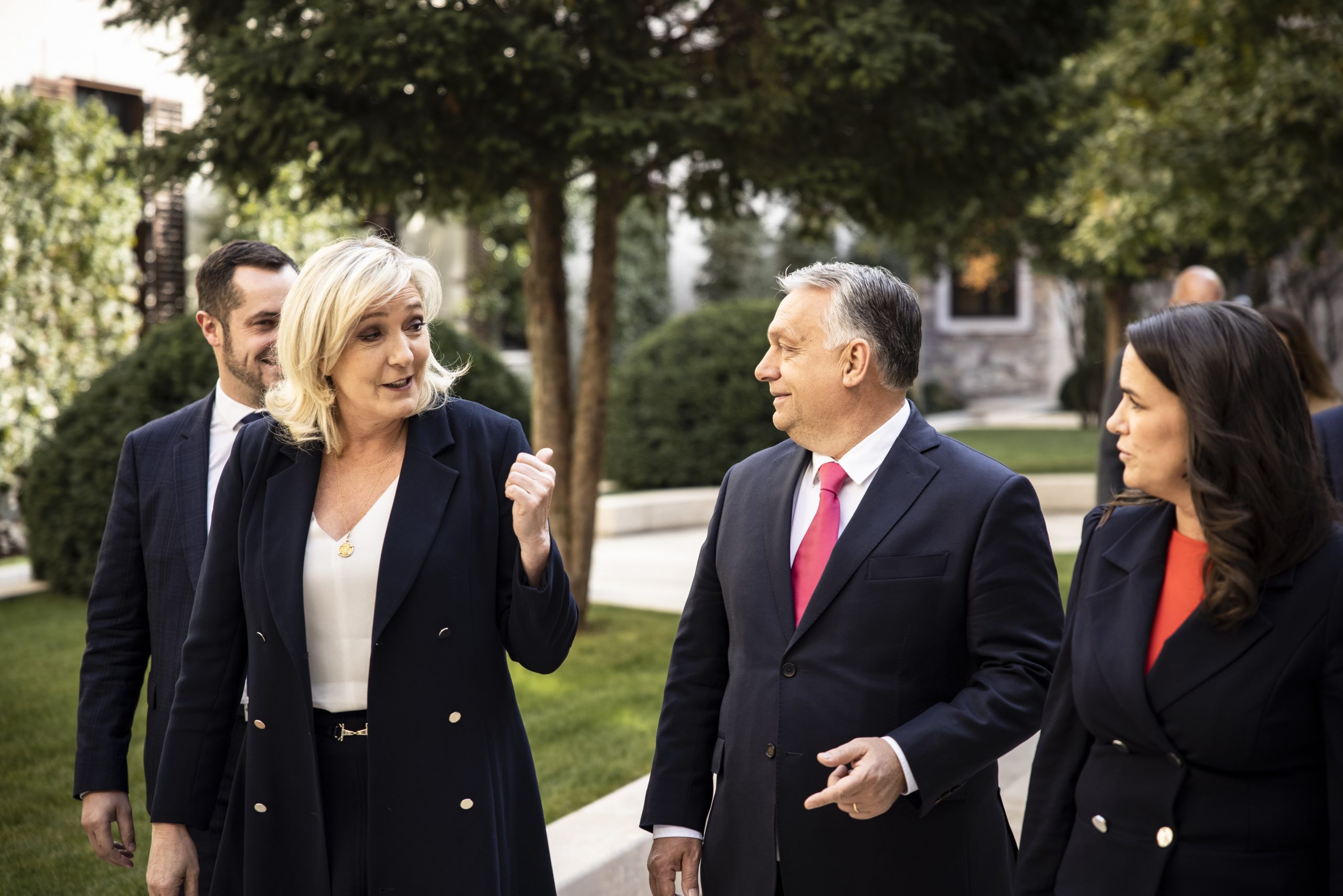
Orbán likened the European Commission to Brezhnev-era Soviet Union, adding that ideological pressure within the EU has become unprecedented.Continue reading

Among the G20 – the world’s 19 largest economies and the European Union – presidential or parliamentary elections will take place or have taken place in 2022 in France, Brazil, India, South Korea, and Australia. From Hungary’s perspective, the French presidential elections were the most interesting, as France is one of the pillars of the EU. The other is Germany, which underwent a change of government last year, when after 16 years, the Merkel era came to an end and a Social Democratic-Green Liberal coalition took over. This weekend, elections were held in both Slovenia and France, but the allies of Hungary’s Prime Minister failed to win.
This article was originally published on our sister-site, Ungarn Heute.
In France, turnout in the second round of the presidential election on Sunday was relatively low at 72%. Five years ago, Emmanuel Macron and Marin Le Pen also faced each other in the second round. Le Pen received 33.9% of the vote then, while Macron was elected with 66.1%. In 2022, the candidate narrowed the gap slightly, but Sunday still brought a comfortable victory for Macron: the latter received 58.5% of the vote, Le Pen 41.4%, according to France24.com.
During her visit to Budapest in October, Le Pen “acknowledged that Hungary has never compromised and has never given up protecting its ancient identity.”
Le Pen thanked Orbán for their “substantive and constructive talks on the future of Europe, and the position and importance of member states that constitute the bloc.” Orbán also praised the Frenchwoman at the time, saying:
Mrs. Le Pen has the great merit that her political camp has become a critical and inescapable player in the face of a federal Europe, migration, and globalization […] the sovereignist camp has become an inescapable force in European politics, and we too want to see a Europe of nation-states.”
There was also talk for a long time that Fidesz, which had left the People’s Party, would form a joint group in the European Parliament with Le Pen’s French party, Rassemblement National (formerly the National Front) and Italy’s Lega and other similar parties, but this has not yet materialized.
The newly-elected Macron also visited Budapest at the end of 2021. The Hungarian Prime Minister emphasized that “Hungary respects France and its president, Emmanuel Macron. But critical questions also came up at the meeting. Among other things, Macron said:
Even though France and Hungary have their differences, France is a loyal partner of Hungary and pro-European. France values the patriotism and mutual respect that we and the other member states have for each other.”
In an unusual move for heads of government, Macron also sat down with the opposition during his visit to Budapest.
However, elections were not only held in France last weekend. Elections were also held in our neighboring country.
The party of Slovenia’s previous right-wing populist prime minister Janez Janša, the SDS, won 23.53 percent of the vote in yesterday’s election, easily beaten by Robert Golob’s Freedom Movement, which was founded only a few months ago and entered the campaign with left-green themes, with 34.5 percent, Politico reports. The SDS, led by Janša, has tried to copy the Hungarian ruling party. It has tried to “magyarize” the media market as much as possible and has received help from Hungary. The owner of TV2, József Vida, bought Planet TV in Slovenia and later had plans to buy radio stations, Forbes reports.
The Hungarian government’s expansion in Slovenia went so far that, according to the National Bank, Hungary became the largest foreign investor in Slovenia with over one and a half billion euros.”
The European Parliament has recently repeatedly criticized the lack of EU values in Slovenia and noted in its final report that the level of public debate, hostile atmosphere, mistrust, and deep polarization in the country is deeply worrying.
An ally – albeit a distant one of Orbán’s – is also Jair Bolsonaro, dubbed a ‘tropical Trump,’ who will be decided by Brazilian voters in October.
Bolsonaro has led Latin America’s largest economy since 2018 after winning presidential elections by a landslide – his inauguration in the Brazilian capital was also attended by Prime Minister Viktor Orbán.
In April, elections were held not only in Hungary and Slovenia but also in Serbia. In June, citizens will be called to the polls in Malta, in September in Sweden, and in October in Latvia and Bosnia and Herzegovina.
Featured image: Prime Minister Viktor Orbán receives Marine Le Pen, President of the French National Rally at the Carmelite Monastery on October 26, 2021. Photo by Zoltán Fischer/MTI/Prime Minister’s Press Office